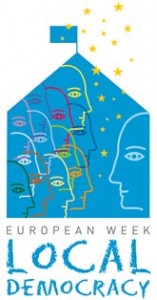This post is us doing our bit for European Local Democracy Week which starts today. We wanted to mark it because we think that local government scrutiny makes an important contribution to local democracy.
First and foremost scrutiny can make a real difference to people by working to improve policies and services.
To show this we will be sharing our annual report for 2010/11 this week via our twitter and facebook accounts. This has meant summarising 12 months worth of work into ten statements of no more than 140 characters each. Think it can’t be done? Well think again! (Don’t worry if you can’t – or don’t want to- access twitter or facebook – we will post the whole thing for you on this blog at the end of the week)
This week is also a good opportuntiy to remind people how scrutiny contributes to local democracy in other ways. Here are five of them*:
1. Accountability
Scrutiny was set up to hold the executive, in other words Cabinet Members, to account. It allows back bench councillors to ask questions of decision makers usually within the Council but from outside as well. This holding to account takes place via a clearly defined set of rules both nationally through law and locally through council constitutions.
2. Participation
Scrutiny is a method for councils to pro-actively engage with the public and encourage people to get more involved in local politics (with a small ‘p’!). When scrutiny committees undertake inquiries or reviews they, more often than not, actively try and find out what the public thinks whether through surveys, focus groups or face to face. The public may also be able to take part directly by attending meetings or even being formally co-opted.
3. Transparency
Scrutiny is an activity that generally takes place in public with meetings open to anyone to watch. Some councils even webcast their meetings. The process of publishing agendas, minutes and reports (usually online) means that a wealth of material is opened up to wider scrutiny beyond the town hall.
4. Representation
Scrutiny is conducted by groups of elected councillors who have the ability to co-opt other people. It may be that not all walks of society are reflected in the membership of scrutiny committees but they nevertheless have stronger democratic claims than unelected bodies.
5. Responsiveness
Scrutiny adds responsiveness to the system of local democracy. It is an important mechanism for the council to gather evidence and intelligence about what is going on locally and to suggest what might be done. It is also more flexible than other parts of the council decision making structure so can respond quickly to local events than say full council meetings.
* These five values of local democracy are part of a list you can find in ‘Assessing the Quality of Democracy: A Practical Guide’ by Beetham et al.

Leave a Comment